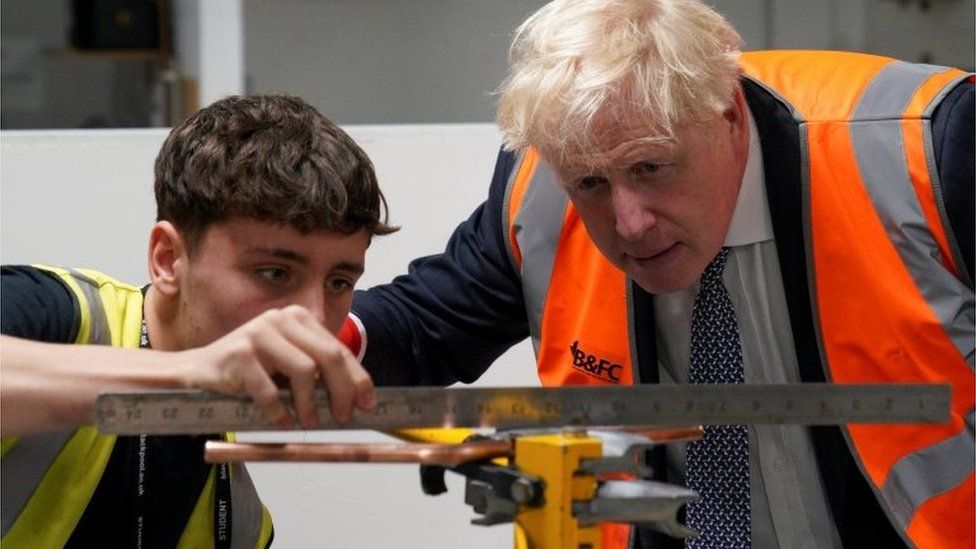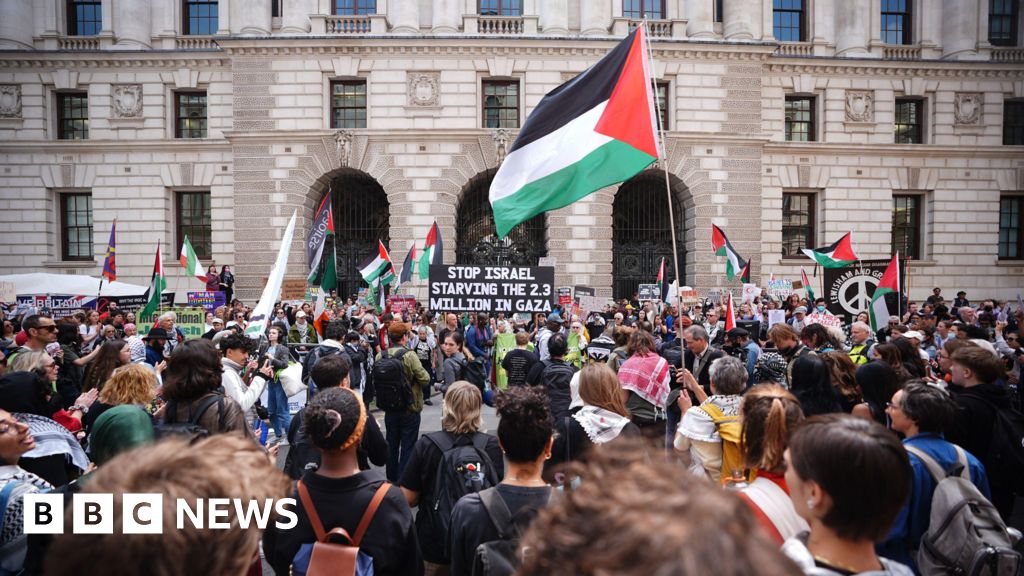ARTICLE AD BOX
By Chris Mason
Political editor, BBC News
 Image source, Reuters
Image source, Reuters
The prime minister is confronting political and economic gales that appear to quicken by the week.
One hundred and forty eight of his own MPs want rid of him. And the pressure on prices gets worse and worse.
It raises an obvious question: Will the former - weakened authority - make it harder to address the latter?
The soaring cost of living is far from unique to the UK, but the forecasts look particularly bleak here: the British Chambers of Commerce talks of growth "grinding to a halt" this year, the Organisation for Economic Co-Operation and Development reckons only Russia will have a more poorly performing economy than the UK next year, among the G20 group of countries.
On our way to watch Boris Johnson's speech in Lancashire, at Blackpool and The Fylde College, we stop off in Wigan in Greater Manchester to visit The Edge Community Grocery.
It's been open since March of last year. People pay £5 a year to be a member, and then £4 per visit and can select up to 15 items.
The team who run it reckon it saves people about £25 every time they turn up and they see themselves as a bridge between food banks and the supermarkets.
Since January, weekly visits are up 44%. There are now 17 such groceries around the country, with an 18th opening in Blackpool in a few weeks.
They illustrate a simple economic reality at the moment: People in work, who would not in normal times regard themselves as poor, find themselves struggling.
People hope to save money on their food bills by shopping at the Edge Community Grocery in Wigan
The prime minister likes to emphasise that government cannot be a panacea here, immunising us all from any impact connected to spiralling prices.
"We have to face some realities," Mr Johnson told us.
But he seeks to offer short term help to the most vulnerable and longer term structural changes - such as the announcement on housing in England - to, as he sees it, reconfigure the economy and people's opportunities.
"We are on your side," was the frequent refrain.
Tax cuts?
And then there are tax cuts.
I've lost count of the number of headlines I've read that have combined the surname of a senior minister and the words 'tax' and 'cut.'
They are forever saying the words, while doing the opposite.
A fascinating insight into the Chancellor Rishi Sunak's political outlook came in a lecture he gave back in February.
It was a vision of Sunak-ism, in theory. Tax was mentioned 33 times.
"I firmly believe in lower taxes," he said, and added: "I am going to deliver a low tax economy."
"But I'm going to do so in a responsible way."
Conservative identity crisis
The current economic climate, the pandemic followed by its aftermath, has led to spiralling public spending, spiralling taxes and a big state.
For some Conservatives, it's prompted something of an identity crisis.
It just doesn't feel Conservative.
Hence the disjuncture: Talking about cutting taxes, while frequently doing the opposite.
And all this with the expectation from many the economic clouds will darken further and with more than four in ten of the prime minister's MPs saying the country would be better off without him.
As I say, it's politically and economically gusty.

 3 years ago
33
3 years ago
33








 English (US) ·
English (US) ·